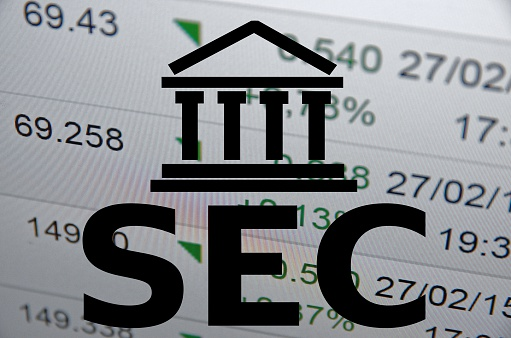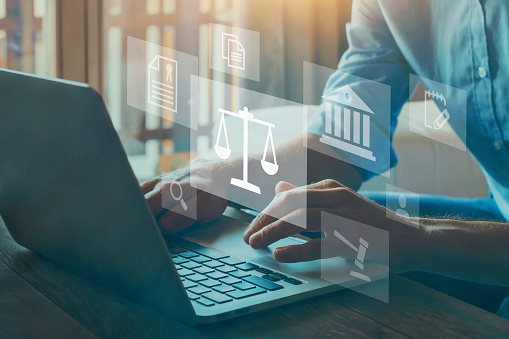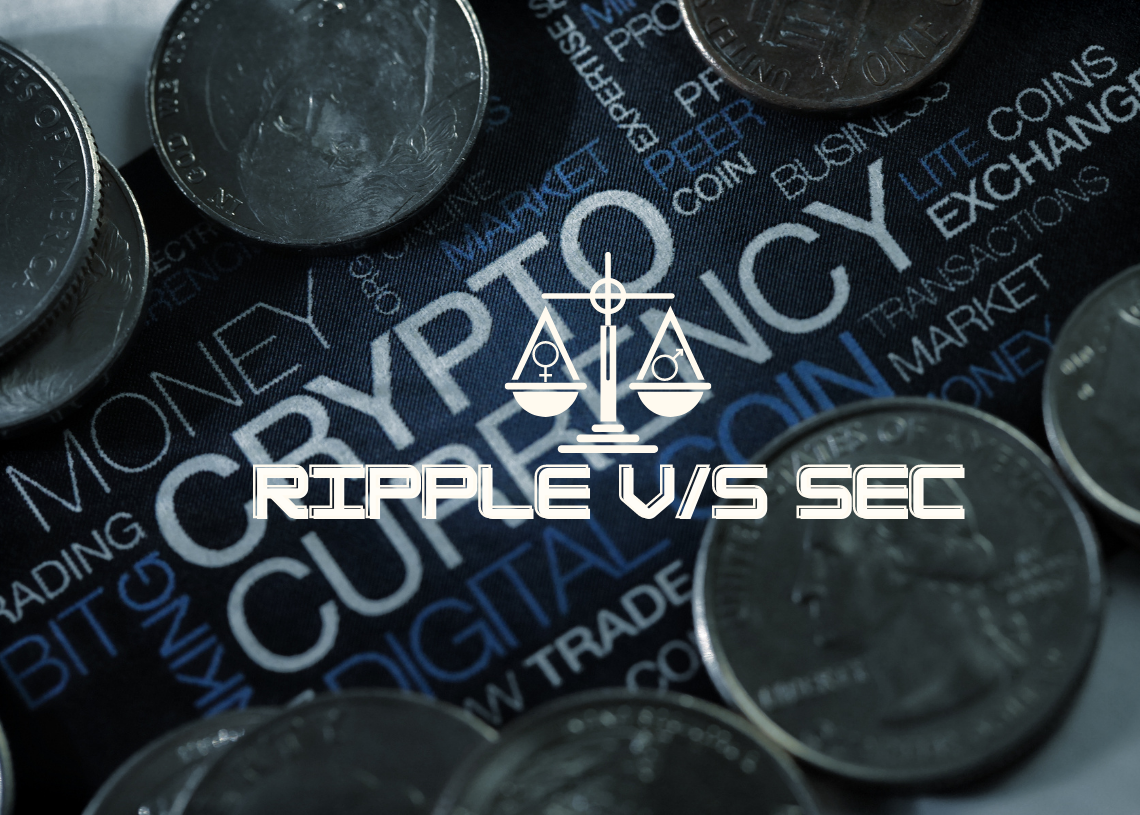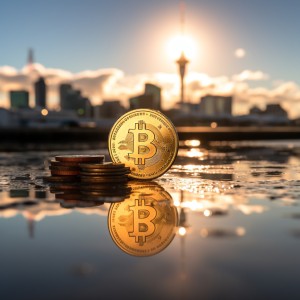As the Ripple vs SEC argument continues to a day ago, the argument by the plaintiff goes:
If the SEC truly believed what it’s alleged, why are Ripple and its co-founder allowed to continue to sell? If XRP traded in the secondary market is an investment contract with Ripple as the SEC claims, why didn’t it seek a preliminary injunction to stop Ripple from continuing to sell? Why didn’t it issue a cease and desist to others who weren’t sued?
John Deaton, attorney for 60,000 XRP Holders with frozen accounts
The Ripple v SEC case continues to confuse within the crypto space. However, it is expected that its output will provide guidelines and clarity to the crypto market participants and companies, and projects in the digital financial markets.
All the participants of the crypto world and digital assets holders are watching as the Ripple case unfolds. Before we look at the latest updates of the Ripple case or talk about how and why the Securities and Exchange Commission decided to sue Ripple Labs, we will look at the Ripple company and then give a quick recap of the SEC vs Ripple lawsuit.
About Ripple Labs
Ripple Labs is an American company that was launched with the cryptocurrency XRP in 2012. Ripple claims to offer global payment solutions by making it easy, cost-effective, and efficient to move money or value to any corner of the world with an advanced blockchain.
The company was founded by Jed McCaleb, a crypto enthusiast and a developer, and Christian Larsen, a wealthy businessman. However, the company’s current CEO, Brad Garlinghouse, played a vital role in the growth of Ripple’s business.
The maximum supply of the cryptocurrency XRP, the native currency of Ripple’s global payments network, is 100 billion coins. XRP is amongst the world’s largest cryptocurrencies by market value.
A recap of the Securities and Exchange Commission vs Ripple case
When Ripple Labs had launched, even though with their brilliant blockchain and the cryptocurrency XRP, they did have to face difficulties as the blockchain and the digital asset (XRP token) had no real purpose. However, we would like to point out that there is no need to mine XRP, and the XRP holders or anyone else can view the Ripple blockchain to see who owns what.
For quite some time, Ripple had been working towards offering financial institutions their native currency, XRP, as a means to transfer funds overseas. However, it wasn’t until 2016 when Ripple hired Brad Garlinghouse, former Yahoo COO, to help them find a good use case for their native crypto asset, XRP. And Garlinghouse was successfully able to do what Ripple had hired him for.
Brad Garlinghouse, the new CEO of financial technology company Ripple Labs, started pitching the digital currency XRP as a bridge currency for global money transfers to banks and financial institutions, making it easier for any currency to be exchanged for another. Moreover, banks or financial institutions would no longer have to hold reserves of minor currencies, which could block the bank’s funds, where XRP cryptocurrency is used for transfers.
In addition, when the banks are required to hold that particular currency for a little while, it can cause an increase in the liquidity and price of the digital asset XRP.
These developments helped Ripple step up their game in the crypto space. Ripple’s partnerships with Santander and MoneyGram caused a considerable increase in the price value of XRP cryptocurrency, which went from less than $0.01 to more than $3.
This is where the Securities and Exchange Commission came in. The government agency decided to take legal action against Ripple, alleging that Ripple had released unlicensed and unregistered securities worth $1.3 billion to the public. The SEC alleged that Christian Larsen, the executive chairman and co-founder of Ripple, and Brad Garlinghouse, the CEO, failed to register XRP when it served as an investment in Ripple to make personal profits.

Source: pixabay.com
Director of the SEC’s Enforcement Division, Stephanie Avakian, made an official statement:
We allege that Ripple, Larsen, and Garlinghouse failed to register their ongoing offer and sale of billions of XRP to retail investors, which deprived potential purchasers of adequate disclosures about XRP and Ripple’s business and other important long-standing protections that are fundamental to our robust public market system.
Stephanie Avakian, Director of the SEC’s Enforcement Division
The Ripple vs SEC case caused a massive fall in the price value of the cryptocurrency XRP, and in December 2020, the price of XRP went as low as 21 cents. However, later in 2021, the price of XRP surged, and the price of one XRP coin was more than $1 at the time of writing.
Federal Securities Laws and the Ripple vs SEC case
The Securities Act of 1933 is the federal law that requires that securities sold to the public be registered with the Securities and Exchange Commission. Federal securities laws are given regulatory clarity by the Securities Act of 1934, which regulates the operation of exchanges and trading.
The main issue in the Ripple vs SEC lawsuit is if the digital asset XRP is a security or a currency. As you might already know, currency refers to money or cash or something you can make payments for. However, on the contrary, security is a financial instrument or even a certificate that has monetary value, usually tradeable.
Still don’t understand what exactly security is? Examples of security include stocks, bonds, and even debentures. Security is sometimes defined as not having a utility and being a tradable asset or even something representing some ownership in a company or a business. The public sales of any such securities are regulated by the SEC.
You might be wondering why this is so important in the Ripple vs SEC case. It is crucial because, under The Securities Act of 1933, different regulations and laws apply to securities.
However, what is “security” is still a little confusing for the SEC, apparently not as straightforward as it should be. This can be seen from the fact that the SEC in 2019 declared that Bitcoin digital tokens were not securities. The SEC filed and made it clear at the time that they “do not believe that current purchasers of bitcoin are relying on the essential managerial and entrepreneurial efforts of others to produce a profit.”
While SEC refuses that all crypto tokens fall under the category of “security,” the governmental agency uses the Howey Test for determining whether a token is a security or not.
What is the Howey Test?
The test was laid down in 1946 in a Supreme Court case, SEC vs Howey, and it plays an essential part when a case involves a “security.” This test can guide whether or not a transaction amounts to an “investment contract,” as mentioned in the Securities Act of 1933. If it does, it will be dealt with as security, and the requirements of registration and disclosure laid down in the Securities Act of 1933 become applicable.
The highest court in the United States of America set the following guidelines, which the SEC filed and claimed to be fulfilled when the cryptocurrency XRP worth $1.3 billion was sold to the public:
- The first requirement is that there has to be an investment of money, which was fulfilled when there were sales of XRP coins worth $1.3 billion.
- The second requirement is that investment of money must be in a company or a project where the investors pool in to invest in a project. This could be satisfied as, according to the SEC, the investors believed they were investing in a joint enterprise when they bought XRP tokens.
- The third and final requirement is that profit is expected. The investments combined with Ripple’s marketing promotion were sufficient to give investors the hope that the price value of XRP will surge.
The Howey Test has been criticized for having unclear requirements. However, another essential factor that can help determine whether a transaction is an investment contract, which would make XRP secure, is the investor’s control over the asset and the profits.
According to the SEC, the sale of XRP coins is worth $1.3 billion, and the nature of the digital asset XRP satisfies all the requirements laid down in Howey’s test. If that is true, then the cryptocurrency is to be categorized as a security.
Ripple responds
Garlinghouse stated that the SEC is going against the concept of ‘fostering innovation’ and that the SEC is not only targeting XRP.
Yoshitaka Kitao, SBI Holdings CEO and a member of the board at Ripple, expressed that he is hopeful that the final decision will favor Ripple Labs. He also said he’s convinced that Japan’s Financial Services Agency has already clarified this matter by declaring that XRP is not a security. He expects a similar decision here in the U.S.
However, David Schwartz, Chief Technology Officer at Ripple and XRP Ledger architect, was not optimistic as Yoshitaka Kitao. He stated on Twitter that the U.S. is a country where the financial watchdogs tend to make things difficult for you by bringing up old laws that you might have been breaking even after you have been working in the light of day and constantly updating the regulators on all that you have been doing.
Garlinghouse and Larsen view the legal action by the SEC as threatening. Garlinghouse stated that most RippleNet users are situated outside the U.S. if XRP is categorized as security, it shouldn’t harm Ripple’s business. Larsen expressed that Ripple is thinking about moving outside and away from the U.S. because of insufficient laws regarding crypto regulation.
Ripple’s legal team
The Ripple lawsuit continues to heat up as the most extensive trial in the crypto world, but Ripple has made it clear that they will not be settling with the SEC. This comes as breaking news to everyone in the crypto space. On the other hand, the SEC alleges that XRP is still unregistered security at this moment in time.
Ripple’s legal team informed Fox Business that there are irregularities in the policies of Gary Gensler, the Chairman of the U.S. Securities and Exchange Commission. As the story develops, Ripple is confident that they can also prove to Gary Gensler that while regulatory clarity is essential for crypto regulation, this lawsuit creates hurdles in the crypto world.

Source: unsplash.com
Lawyer Jeremy Hogan, a crypto enthusiast, had the chance to take a closer look at SEC v Ripple and clarified that legal teams are not willing to settle as that can sometimes be seen as a sign of weakness, but that is just his personal opinion.
Jeremy also pointed out that the Ripple lawsuit could go on until 2022 simply because of the slow-moving nature of the case. Regardless, individual investors took to social media to express that they hoped for a settlement as quickly as possible.
He also said that it is not easy for the SEC or Ripple to hope for a settlement as the case’s expert discovery phase has not ended yet, which means that nobody knows the extent of the other party’s claim. Jeremy says that even if there was hope for a settlement, how much money are we talking about here? 1 Million? 50 Million? A Billion?
As you can imagine, any company would worry about the difference in paying $1 million against $1 billion. Every company and business around the world would be ready to wait for a few months, even years, in the hope that they can save millions of dollars.
SEC ordered to explain
Judge Sarah Netburn ordered the SEC to explain how the test laid down in the Howey case is relevant in the Ripple lawsuit and under what category other well-known crypto assets like Bitcoin and Ether fall.
However, Judge Sarah Netburn has also allowed the SEC’s request for extending the last date for the expert discovery phase, something that no one in the crypto world was hoping for.
That’s not all; the SEC has been ordered to develop logical and understandable replies to some of the questions asked by Ripple and Ripple’s legal team. According to lawyer Jeremy Hogan, this could mean that the SEC will now be required to accept that there is nothing in any of the transactions in question that could build up hope of profits amongst the buyers of XRP.
Coinbase’s CEO on the Ripple Lawsuit
Brian Armstrong, the CEO of the largest cryptocurrency exchange, made some positive statements in favor of Ripple and against the legal action taken by the SEC. Armstrong believed that the Ripple vs SEC case is proceeding and moving forward better than most had anticipated.
Coinbase CEO was also an opinion that the SEC is finding out that moving against crypto asset projects is unpopular and disliked simply because it can harm the customers. Armstrong added that the SEC is looking to prey on the very people they are supposed to be protecting.
Armstrong’s positive comments on the Ripple vs SEC lawsuit came as a surprise for most in the crypto world, and now many believe that these comments will cause a surge in the price value of XRP crypto assets.
Coinbase had delisted XRP when the SEC filed the lawsuit on unregistered personal sales. While many expect Coinbase will soon be relisting the cryptocurrency, some believe Coinbase will not do so anytime before the case is over.
It is worth mentioning that Coinbase itself had some problems with the SEC when introducing a lending program. However, they decided to debate with the SEC about the program but were threatened with legal action if they chose to go on with the program, which caused them to put it aside.
The view of the token holders
U.S. District Judge Analisa Torres ruled that people who hold the XRP digital tokens can now bring in their meaningful view in the SEC v Ripple case. The token holders can offer their influential opinions on some questions of law that have arisen in the case.
The case could bring in essential and helpful guidelines for regulating a digital currency like XRP. Investors and token holders are looking to intervene as the final decision of the lawsuit will have a direct impact on their interests.
However, the ruling of the case will not only have an impact on the Ripple community. The findings could set out guidelines or a precedent to be followed by all the participants in the world of cryptocurrencies. But of course, the effect of the outcome depends on the product, and right now, it is perhaps too early to say.
Most people are optimistic about the case as the odds favor Ripple; however, the biggest concern for everyone, especially the current XRP token holders, is what could happen to the price value of the cryptocurrency.





